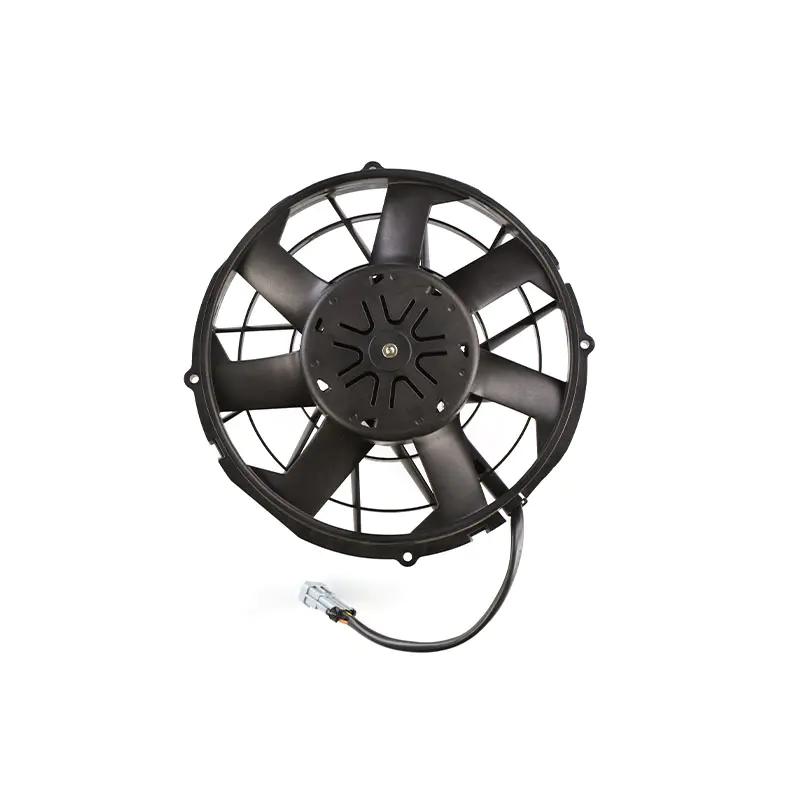Contact Us
Your email address will not be published. Required fields are marked *
High-Efficiency and Low-Noise DC Brushless Axial Flow Fans Transform Industrial Cooling
Jan 22, 2026Enhancing Cooling Efficiency: The Role of High-Performance Tank Radiator Fans
Jan 15, 2026High Airflow Performance Redefines Tank Radiator Brushless Axial Fans
Jan 08, 2026IP68 DC Motors: Redefining Performance in Harsh Environments
Jan 01, 2026What Are the Key Differences Between Automotive DC Centrifugal Fans and Standard Fans?
Dec 26, 2025How Can DC Cooling Fan Motors Enhance Performance in High-Temperature Environments?
Dec 18, 2025What Is an Automotive DC Centrifugal Fan and How Does It Work?
Dec 11, 2025How Can DC Cooling Fan Motors Improve Energy Efficiency in Industrial Applications?
Dec 04, 2025What Affects the Durability and Lifespan of DC Axial Fans?
Nov 27, 2025What Determines Pressure Performance in EC Forward-Tilting Centrifugal Fans?
Nov 20, 2025What Factors Influence Energy Consumption in DC Axial Fans?
Nov 13, 2025How Do EC Forward-Tilting Centrifugal Fans Improve Airflow Stability?
Nov 06, 2025
Compared with traditional brushed centrifugal fans, DC brushless centrifugal fans have shown significant advantages in high efficiency. This high efficiency is not only reflected in the improvement of energy utilization, but also throughout the entire operation process, including power transmission, heat management, maintenance costs and other aspects.
energy conversion efficiency
The core of DC brushless centrifugal fans lies in its brushless DC motor technology. Compared with traditional brushed motors, brushless motors have a qualitative leap in energy conversion efficiency. Brushless motors use electronic commutators instead of traditional mechanical commutation devices (i.e. carbon brushes and collector rings). This change greatly reduces the loss of energy during the conversion process. When a brushed motor is running, friction will occur between the carbon brushes and the collector ring, causing electrical energy to be converted into thermal energy instead of mechanical energy, thereby reducing the overall efficiency. Brushless motors avoid this loss, allowing more electrical energy to be converted into effective mechanical output, improving the energy conversion efficiency of the wind turbine.
Stable output of air volume and pressure
DC brushless centrifugal fans pay more attention to the stable output of air volume and air pressure in design. The precise control capability of the brushless motor allows the fan to maintain constant air volume and pressure under different working conditions, which is particularly important for application scenarios that require precise control of ventilation effects. In contrast, traditional brushed motors are prone to air volume fluctuations and unstable air pressure when the load changes, which affects the overall performance and stability of the system.
Stepless speed regulation and intelligent control
Another significant advantage of brushless motors is that they support stepless speed regulation. This means that users can achieve precise control of the fan speed by adjusting the input voltage or current of the motor according to actual needs. This flexible speed regulation method not only improves the response speed of the system, but also maintains optimal operating efficiency under different working conditions. In addition, combined with advanced intelligent control algorithms, DC brushless centrifugal fans can achieve more precise and efficient air volume distribution, further improving overall performance.
Thermal management optimization
In terms of high performance, thermal management is also an aspect that cannot be ignored. DC brushless centrifugal fans are optimized in thermal design to ensure that the motor can maintain a low temperature under long-term high-load operation. The electronic commutator of the brushless motor reduces mechanical friction and heat generation. At the same time, combined with an efficient heat dissipation system, it can quickly dissipate the heat generated by the motor and maintain the stable operation of the motor. This good thermal management capability not only extends the service life of the motor, but also improves system reliability and stability.
Maintenance and cost savings
From the perspective of maintenance costs, DC brushless centrifugal fans also demonstrate high performance characteristics. Since brushless motors do not have wearing parts such as carbon brushes, they reduce failures and maintenance needs due to mechanical wear. This not only reduces the user's maintenance costs, but also improves the overall operating efficiency of the system. In addition, the long life of the brushless motor also means that users do not need to replace the motor for a longer period of time, further saving costs.
DC brushless centrifugal fans show many advantages in terms of high efficiency compared to traditional brushed centrifugal fans. These advantages are not only reflected in the improvement of energy conversion efficiency, but also throughout the entire operation process, including stable output of air volume and air pressure, stepless speed regulation and intelligent control, thermal management optimization, and maintenance and cost savings. These characteristics make DC brushless centrifugal fans widely used in many fields and become an important force in promoting technological progress in the industry.

Your email address will not be published. Required fields are marked *
Zhejiang Nicety Electric Machinery Co., Ltd. specializes in the production of four series of products: condenser electronic fan, radiator (water tank) fan, blower, and air conditioner assembly. Professional production American, European, Japanese, Korean And Domestic brand DC automotive axial fans.
Email: [email protected] / [email protected]
Tel: +86-0578-7125439 / +86 181 0658 9231
Address:No. 98, Guangda Street, Jinsha Industrial Zone, Longquan City, Zhejiang Province, China